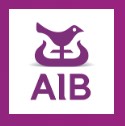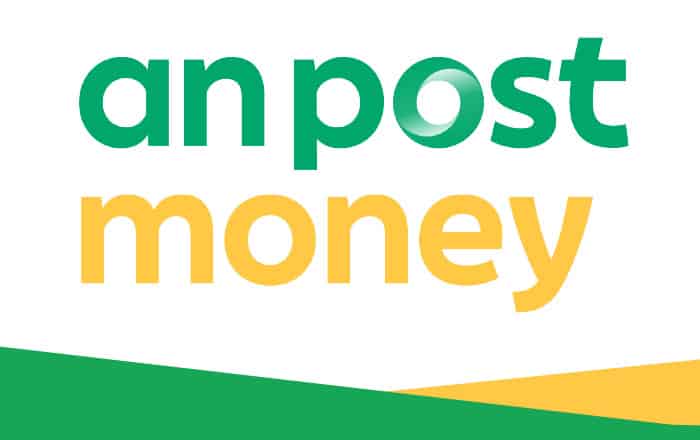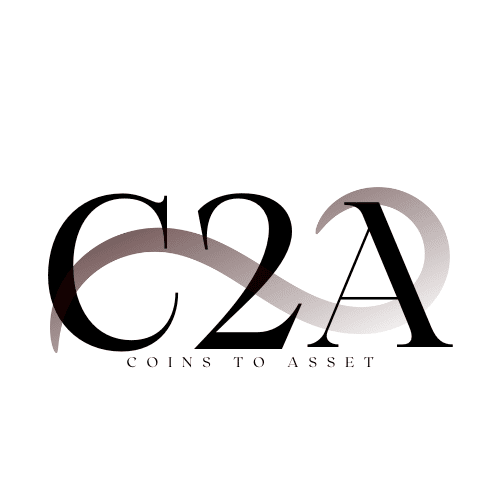Best Banks Ireland April 2024
A stable and viable banking sector is essential for any modern economy to support the wellbeing of society as a whole. Irish banking sector is served by the three traditional banks, credit unions, An Post, digital banks and a number of non-banks. Irish market lost two significant competitors – Ulster bank and KBC. This sector is perceived to be less competitive amongst its remaining three traditional banks. Central Bank of Ireland and the Competition and Consumer Protection Commission (CCPC), continue to work closely together on issues to ensure the orderly functioning of markets, consumer protection and competition in the banking sector.
Key Takeaways
- The traditional banks, credit unions and An Post operate country wide physical branch networks, as well as digital or online platforms.
- For mortgage lending the traditional banks are increasingly using broker channels.
- An Post and some credit unions offer current accounts and credit to consumers.
The banks in Ireland offers a broad range of deposit, credit and payment services to consumers and businesses. An Post and credit unions, who both have extensive branch footprints nationwide are also key players in the Irish Banking sector. The key products and services provided by the banking sector include: the acceptance of deposits to meet the savings needs of consumers; the provision of loans, including, credit cards, mortgages, personal loans and business loans; and enabling payment for goods and services.
Traditional Banks – AIB, Bank of Ireland and PTSB
Non-Banks – Credit Unions and An Post. The credit unions and An Post both offer retail banking products and services through their extensive community based networks, with An Post also offering services through franchise post offices.
Digital Banks – Bunq, N26 Revolut – all providing current accounts, whilst one offers credit to consumers. The digital banks have no branch network. The digital banks Bunq, N26 and Revolut, who are headquartered and authorised by regulators in The Netherlands, Germany and Lithuania respectively, all operate in Ireland on a passporting basis, and collectively are reported to have built an Irish customer base of about two million.
>> Click here: Best online banks in Ireland
Summary of Best Banks Ireland
*market cap as at February 2024 (market cap fluctuates based on market conditions and investor sentiment)
Allied Irish Bank

Market Cap
€10.41b as at feb 2024
Branch Network
170 branches
Fees
- Account fees: €4.50 per quarter
- Overdraft fees: €25.39
- ATM withdrawal fees: €0.35
- Chip and pin: €0.20 per transaction
Key Highlights and Performance
AIB is a market leader with a Mobile App and Internet and Phone Banking services, AIB maintains the largest branch network in Ireland, with market-leading positions across multiple personal, SME and corporate products and services. AIB is also a leading mortgage provider with a dedicated team of mortgage experts, AIB provides application options in-branch, over the phone or online. EBS is the mortgage-focused brand of AIB and Haven is AIB’s broker channel. AIB, EBS and Haven all offer competitive green mortgage products. AIB also offers Wealth & Pensions Management to support customers to achieve their financial goals we provide a range of pensions, savings and investment options and advice. Other AIB brands are Goodbody and AIB life, a joint venture with Great-West Lifeco.
Bank of Ireland

Market Cap
€8.66b as at feb 2024
Branch Network
169 branches
Fees
- Account fees: €6 per month
- Overdraft fee: €30
- ATM Withdrawal fees: Free
- Chip and Pin: free
Key Highlights and Performance
Bank of Ireland is the only privately held domestic bank in Ireland, following State sell down of its shareholding in the group. Bank of Ireland is the leading provider of new lending for green mortgages and also wholesale finance for electrically charged vehicles in Ireland. Bank of Ireland acquired KBC portfolios, which transformed its scale of our Irish mortgage business, with completion and customer migration now complete. Bank of Ireland also acquired Davy. It also has a wealth insurance business. Bank of Ireland’s savings and investments footprint now straddles the whole spectrum including mass market, mass affluent, and high net worth customers.
Permanent TSB

Market Cap
€897.5m as at feb 2024
Branch Network
98 branches
Fees
Account fees: €6 per month
Overdraft set up fee: €25
ATM withdrawal fees: free
Chip and Pin: Free
Key Highlights and Performance
PTSB is one of only three remaining full service retail banks in Ireland and growing through the acquisition of certain elements of Ulster Bank’s retail, SME and Asset Finance businesses. With the acquisition of €6.7bn of Ulster Bank assets, PTSB increased its branch network with an additional 25 new branches. They deliver their services directly to customers through a combination of Tech & Touch sales and services through our nationwide network covering 75 branches (98 in January 2023), intermediary channel and digital & voice channels. They have a channel mix by investing in self-service digital channels while maintaining the crucial role in-person channels (branch & voice) plays in onboarding, lead generation & supporting customers that fall off digital journeys. In 2022, PTSB continued to update its digital capabilities offering current accounts, mortgages and business banking through voice and digital channels. And if you have a mortgage with PTSB and pay this from your Explore current account, you’ll receive 2% cashback on your monthly mortgage repayments until 2027
An Post Money

Market Cap
Not applicable
Branch Network
933 branches
Fees
- Account fees: €2 for 16-23 and €5 for 23+
- Overdraft set up fee: not offered
- ATM withdrawal fees: €0.60
- Cash withdrawal: €0.50 with first weekly cash withdrawal at post office free
Key Highlights and Performance
An Post’s branch network is extensive with 944 active post offices, of which 45 are run directly by An Post and 899 run as franchises by postmasters. An Post makes an important economic and social contribution at community level, serving consumers and small businesses with a range of vital services including financial and banking services. Every week, An Post interacts with around 1.3 million customers and distributes social welfare including through cash payments. It also operates lodgement and withdrawal of cash services on behalf of banks. An Post has a network of post offices providing a range of retail banking products and services to consumers, including cash/cheque lodgements, cash withdrawals, current accounts, credit cards and consumer credit,15 as well as access to State Savings. An Post provide credit cards and consumer credit as an agent for Avant Money.
Credit Union(s)

Market Cap
n/a
AUM – €20 billion
3.5million members
Branch Network
212
Fees
- Account fees: €2 for 16-23 and €5 for 23+
- Overdraft set up fee: not offered
- ATM withdrawal fees: €0.60
- Cash withdrawal: €0.50 with first weekly cash withdrawal at post office free
Key Highlights and Performance
Credit unions in Ireland are financial co-operatives that allow members to save and lend to each other at fair and reasonable rates of interest. There are over 200 credit unions in Ireland providing financial services to 3.5 million consumers and small businesses, through a range of savings, lending and payment products and services. At 31 March 2022, the sector had total assets of €20.0 billion and total loans outstanding of €5.3 billion. There are 204 credit unions, operating from over 400 locations all providing savings account products and consumer credit, with a growing number developing a capability to provide current account and mortgage lending products, as well as expanding into the SME sector.
The traditional banks, credit unions and An Post operate country wide physical branch networks, as well as digital or online platforms.
What is the Market size of Irish Banking System?
With a population of 5.1 million, the size of the Irish market is small by international standards. Forecasts for 2022 has Gross Domestic Product (GDP) at €499bn and modified Gross National Income (GNI*) at €261bn10 (with the latter being more reflective of the domestic economy). There are c. 272,000 SMEs operating in Ireland representing 66.4% of total private sector employment and 43.6% of total turnover.11 The dimensions of the key product offerings of the different category of firms operating in the retail banking sector are set out in Table 1.
Traditional Banks vs Credit Unions
Types of Banks in Ireland
Traditional Banks: AIB, BOI, PTSB) with 438 branches providing a wide range of retail banking products and services, including cash services, credit (consumer, mortgage, SME), account and payments services as well as other services outside of the scope of this Review, such as investment and insurance services.
Digital Banks: There are three digital banks (Bunq, N26, Revolut) all providing current accounts, whilst one offers credit to consumers. The digital banks have no branch network.
Credit Unions: There are 204 credit unions, operating from over 400 locations all providing savings account products and consumer credit, with a growing number developing a capability to provide current account and mortgage lending products, as well as expanding into the SME sector.
An Post has a network of 912 post offices providing a range of retail banking products and services to consumers, including cash/cheque lodgements, cash withdrawals, current accounts, credit cards and consumer credit,15 as well as access to State Savings.
How to Choose a Bank
Choosing a bank can be a daunting task. Here some of the steps that you can take to find the best bank that suits your needs here in Ireland:
- Do your research: Find out what banks offer. In Ireland there are not so many banks and online banks, so your research wont take long. Ensure that you have all the available information about potential banks, such as their, Products, Services, Fees, Interest rates, and Customer reviews. You can use online comparison tools and websites of different banks to find out more .
- Understand your needs: Establish why you need a bank account and what kind of features and benefits you are looking for. For example, do you need a current account for everyday spending and receiving money, or do you need a savings account for long-term goals? Do you want to access your money online or in person? Do you want to earn interest or cashback on your transactions? Do you need an overdraft facility or a credit card?
- Choose a bank that caters to your specific needs and goals: Some banks offer specialized services or products, such as student accounts, mortgages, or investment services. Choose a bank that has the best options for your situation and can help you achieve your financial objectives. Read customer reviews and seek recommendations from friends or family in Ireland .
- Compare the costs and benefits of different banks: Once you have narrowed down your options, compare the costs and benefits of each bank. Consider the monthly maintenance fees, ATM withdrawal fees, overdraft fees, foreign transaction fees, and other charges that may apply. Also, look at the interest rates, cashback offers, rewards programs, and other perks that each bank provides. Choose the bank that offers the best value for your money and meets your expectations .
- Open an account with your chosen bank: To open an account with a bank in Ireland, you will need to provide some personal information and documents, such as your name, address, date of birth, proof of identity, proof of address, PPS number, and income details. You may also need to make an initial deposit or set up a direct debit. You can apply online or visit a branch to open an account. Once your account is opened, you will receive a debit card, a chequebook (if applicable), and access to online banking .
What Services does a Typical Irish Bank offer?
The main priority of banks is to meet the needs of consumers and SME’s through services that provide value to them. The traditional banks offer the full suite of retail banking products and services, including mortgage, SME and consumer lending, deposit accounts and payment services. To date digital banks have focused primarily on payments, while non-banks mainly offer lending products, often specialising in a particular product or smaller product range, or lending to a particular sector. The credit unions provide deposit account services, while their lending offering focuses mainly on unsecured consumer loans, with modest levels of mortgages and SME credit. An increasing number of credit unions also offer current accounts. An Post, in addition to providing current accounts, also provides deposit gathering through State savings on behalf of the NTMA, consumer credit as agent for an international bank as well as cash services to the customers of some of the traditional banks.
Frequently Asked Questions

Lynda Unogu MBA IMC (CFA UK) PMP
Lynda holds an MBA from University College Dublin and worked previously in product roles within financial services and technology firms like Mastercard, Citi Bank and JP Morgan. She constantly seeks to apply her expertise in financial services to the field of personal finance with the goal of helping people navigate the complexities of the finance.
